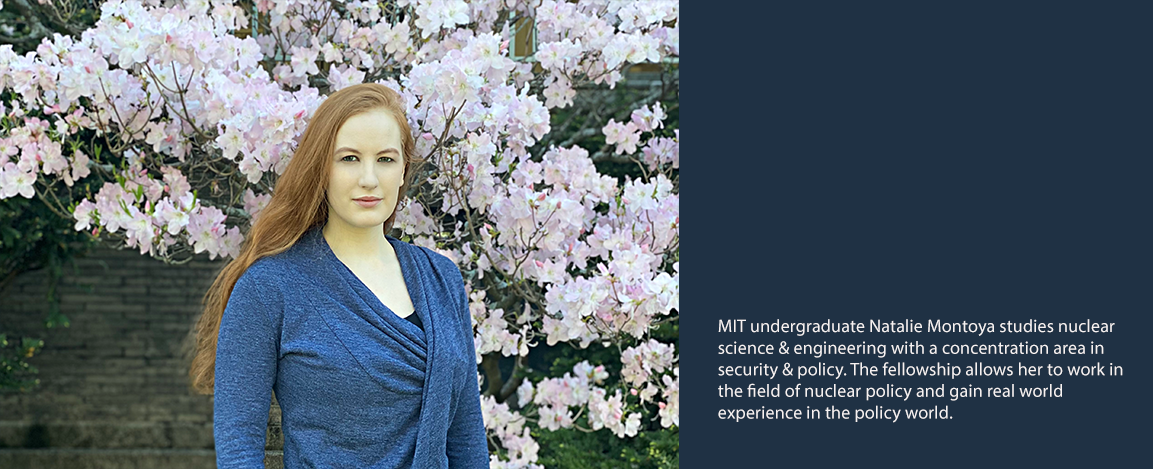Natalie Montoya studies nuclear science and engineering with a concentration in security and policy at MIT. The fellowship was of interest to her because of its focus on nuclear policy.
Natalie Montoya's Student Profile:
Major: Nuclear science & engineering, flex option ('22 ENG) with a concentration area in security & policy
Minors: Japanese and energy studies
Thesis research: Simulating nuclear attacks on the United States by Russia in first and second strike scenarios and evaluating the estimated damages, casualties, and surviving arsenals
Previous research: Massachusetts Environmental Justice Policy analysis and recommendations, COVID-19 symptom analysis using Bayesian computation, computational materials modeling of ZrO band gaps for nuclear fuel cladding using density functional theory (DFT)
What inspired you to apply for this fellowship?
I plan to eventually go to grad school, so I reached out to alumni, current graduate students, and advisors, and the universal piece of advice I received was to go out and get work experience before entering into a graduate program in a policy field. Hence, I decided to apply to fellowships as a way to gain experience working in policy in a setting where I'll receive mentorship and guidance as well as to further develop my research and writing skills outside of academics. In particular, I applied for the Carnegie Endowment's Gaither Junior Fellowship because the fellowship is specifically in nuclear policy and involves doing actual research and writing work. I will be in Washington, DC, for the fellowship, but whether or not it starts in person will depend on the state of the pandemic at that time. My work will be primarily to provide research and writing support to the senior staff and in the latter half of the fellowship to work on an independent research project; should the circumstances allow, I will also attend events and conferences in the field. By participating in the fellowship, I hope to gain knowledge and experience researching current issues in nuclear policy and nonproliferation and get a better sense for what issue(s) I want to focus on in my eventual graduate studies. Additionally, I hope to develop my professional network and decide where I want my career trajectory to go (eg, government, non-profit, back to academia, etc.)
What next?
At this point, I'm not sure what I'll be doing immediately following my fellowship at the Carnegie Endowment. Eventually, I plan to pursue a PhD, but I may decide to get more work experience and/or pursue a master's degree beforehand. It's really too soon to say. Hopefully, participating in this program will help me in solidifying my future plans.
Learn more about CIS Fellowships + Grants



